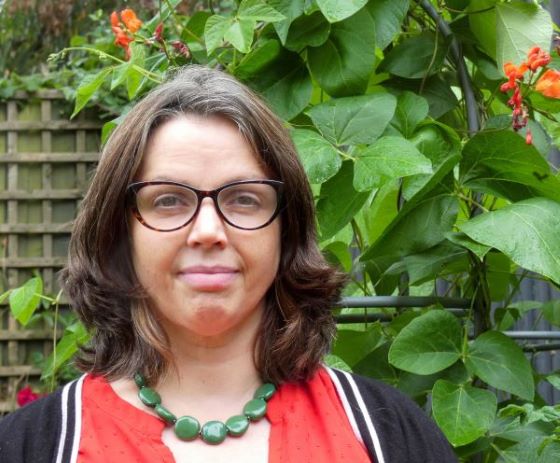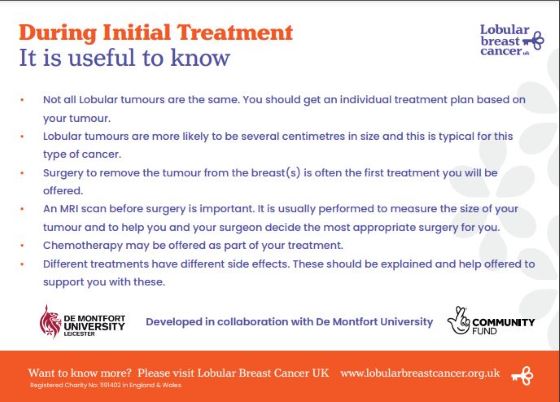A set of ‘digital postcards’ which can be accessed by patients to ensure they ask the correct questions about a cancer often hard to diagnose, has been co-designed by patients with researchers at De Montfort University Leicester (DMU).
Lobular Breast Cancer accounts for 15 per cent of all breast cancer diagnoses but grows like a net rather than appearing as a lump and often does not show up on mammograms and scans in the early stages.

DMU's Dr Helen Coulthard was diagnosed with Lobular Breast Cancer
The lack of a lump in the breast tissue also means it is harder to detect on self-examination.
The delay in diagnoses can mean more radical treatments are needed once Lobular Breast Cancer has been detected. In addition, many Lobular Breast Cancer patients are concerned about after-care and follow-on screening or a possible return of the disease.
Now, DMU Psychology Reader Dr Helen Coulthard, who was diagnosed with Lobular Breast Cancer in 2019, has worked with fellow DMU researchers Professor Iain Williamson and Dr Kerry Quincey, along with the charity Lobular Breast Cancer UK, to create digital postcards which patients can use when in a consultation with their medical teams.
Dr Coulthard said: “It is amazing that Lobular Breast Cancer accounts for 15 per cent of breast cancer diagnoses but so few people have heard of it.
“I do not want to frighten people, but it is important we all realise breast cancer does not always start with a lump.
“We see these postcards as an aid for interactions with health professionals at different stages of treatment and a way of raising awareness and vigilance. There is a lack of knowledge about Lobular Breast Cancer amongst some health professionals, and recognition that it is a distinct disease, and so alternative checks and treatments are not offered.

“We want these digital postcards to be the helping hand during consultations. At such a worrying time, your mind can go blank and then there can be confusion about what to ask or decisions to make.
“The information is designed to ensure you have a checklist ready and are asking the best questions for that stage of treatment.”
Prof Williamson ran some of the on-line workshops involving breast cancer patients from across the UK to help pull together the information for the postcards.
He said: “Three focus groups were held which were very lively and very well attended with women from around the country talking about their experiences.
“The postcards were designed based on what they had said. We wanted to know what someone would find useful or not useful. The discussions were excellent and resulted in the digital postcards we have now.”
Claire Turner is co-founder and Chair of Lobular Breast Cancer UK. Following a diagnosis of Lobular Carcinoma in Situ (LCIS), a risk marker for breast cancer, in 2014 and invasive Lobular Breast Cancer in 2017, Claire could not find any information about Lobular in the UK and there seemed to be little understanding of the disease.
Following conversations with the Lobular Breast Cancer Alliance in the USA, Claire founded LBCUK with several women, including Dr Coulthard, who also had had a Lobular diagnosis. Claire has worked with the DMU team to reach patients and create and publish the digital postcards.
She said: “Having a breast cancer diagnosis is scary enough without then being diagnosed with a type of the disease, Lobular Breast Cancer, that you have never heard of, and that you learn can behave and respond to treatment differently than the more prevalent ductal breast cancer.

One of the digital postcards to help people understand Lobular Breast Cancer
“Unfortunately, our current NHS treatment guidelines do not recognise Lobular as the distinct disease that research has proven it is.
“We hope that this digital resource provides information and confidence for patients in their conversations with medical professionals. We want the postcards to assist patients with making the right decisions about their treatment.
“The collaboration with DMU has enabled LBCUK to work with experienced health psychologists to identify and respond to the key needs of patients.”
Posted on Tuesday 16 July 2024